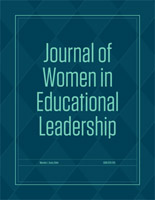Educational Administration, Department of

Journal of Women in Educational Leadership
Date of this Version
10-2010
Document Type
Article
Citation
Journal of Women in Educational Leadership, Vol. 8, No.4- October 2010
Abstract
Mentoring female doctoral candidates to obtain access to positions in higher education has not been widely researched. Women often aspire to the professorship only to find limited access to these positions. Even though a doctoral degree is a vehicle for acquiring a career in higher education, the transfom1ation from doctoral candidate to assistant professor is usually a long and winding road. While devoting hours to extensive course work, conducting research studies, and writing and rewriting dissertation drafts, it is not uncommon for graduate students to begin to imagine themselves as professors like the professors they have worked with in higher education. A commentary on mentoring at the graduate level focusing on literacy education by Cobb, Fox, Many, Matthews, McGrail, & Sachs (2006) found that while engaged in graduate programs, doctoral students began thinking about their "changing identities or roles" (p. 374). When thinking about their changing roles, students recognized the additional help they would need "navigating within the culture of the university" (p. 375). The students often looked to their professors to mentor them and show them the way. This commentary asserts that to get the most out of their graduate experience, students need to be "proactive in seeking mentoring experiences" (p. 376).


Comments
©2010 Pro>Active Publications